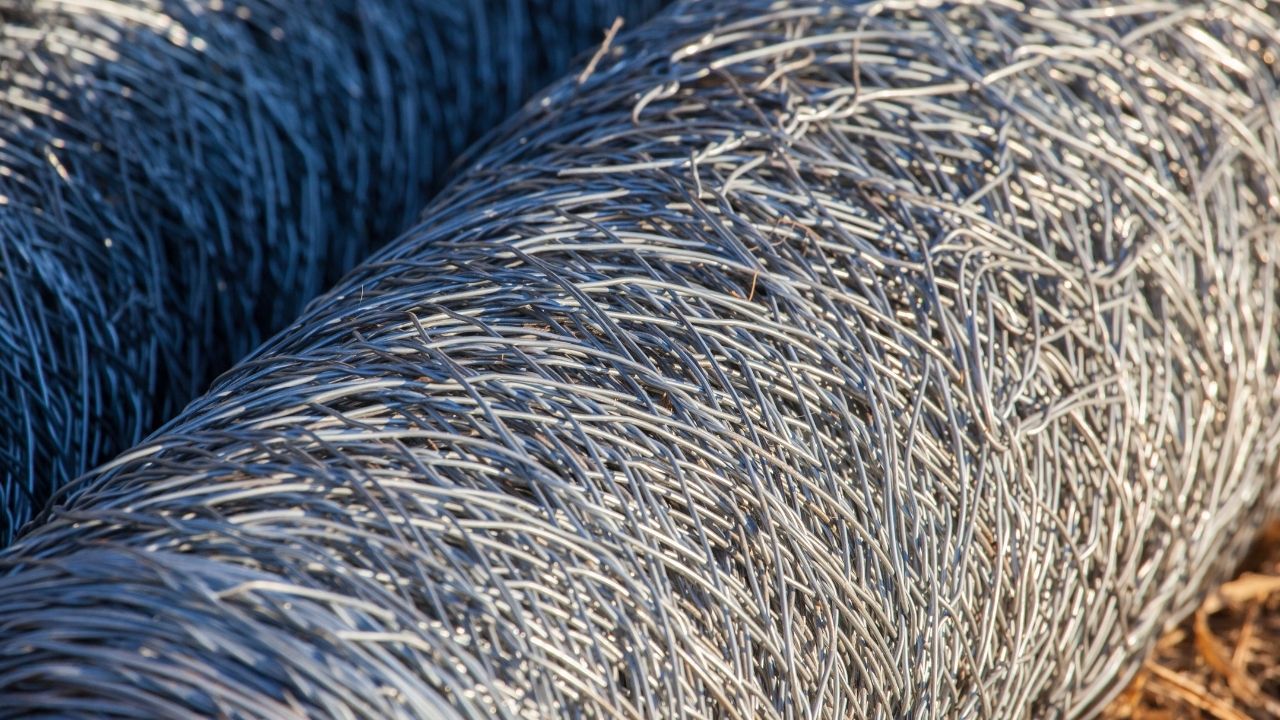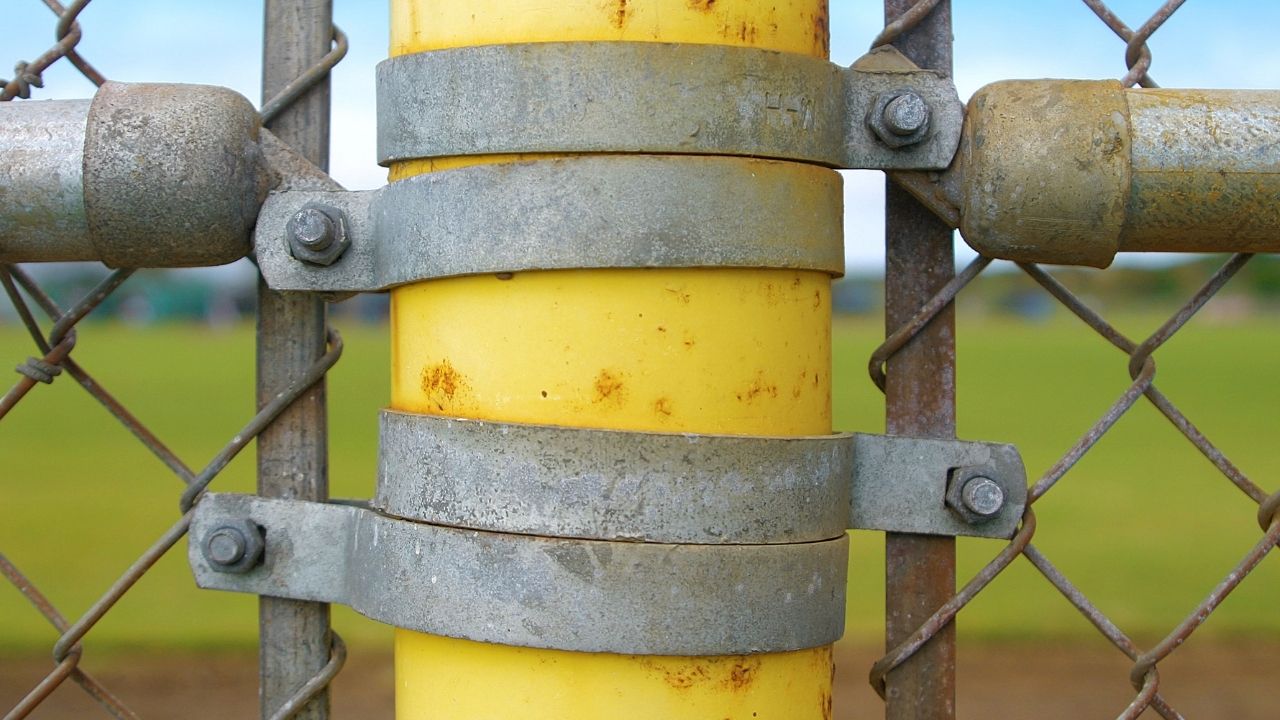
Want to install a wire mesh fence but don’t know what you’ll need? Don’t worry, since today we’ll go over the many chain-link fence materials to keep in mind when going for this type of fencing. Having suitable materials for your fence will assure you more security for your property.
Additionally, chain link fences tend to get corroded with the spread of rust and decay. For that reason, it’s essential to work with a fence contractor to look for the most durable materials.
Main Chain Link Fence Materials You’ll Need for Its Installation
Just like wood fence panels and vinyl fences, chain-link fences are the perfect asset to provide you security while at the same time increasing the value of your property.
Installing this type of fence is hard, so you need to be aware of the different guidelines of its installation. That way, you can be sure that you won’t miss anything and, above all, avoid any unnecessary trips to your local hardware store. As a result, you’ll end up saving both time and money.
These are the primary chain-link fence materials you should take into consideration when installing:
- Wire materials such as aluminum and galvanized steel
- Wire coatings, like paint and vinyl coatings.
- Tie wires
- Gauge and wire mesh sizes
- Corner and line posts
- Post caps
- Tension bars and bands
Wire Materials such as Aluminum or Galvanized Steel

First and foremost, you’ll need to decide what type of wire material you’re going to go for. There are three main wire types you can choose from:
Aluminum Wires
As you might know, aluminum wires are one of the most potent materials for chain-link fences. The cables are resistant to multiple weather conditions, which means they are less susceptible to corrosion. Besides, they can last more than 20 years due to the aluminum.
Galvanized Steel Wires
Galvanized steel wires are another excellent option for your chain-link fences. The wires count with a zinc coating which creates a durable layer against corrosion and moisture. Like aluminum, galvanized steel wires last more than 25 years, and the wires need less maintenance. These wires used to be more expensive than their counterparts.
Wire Coatings, such as Paint and Vinyl Coatings
After choosing the wire type you’re going to work with, you’ll also want to select its coating. By doing so, you’ll add extra durability and even increase its appeal. The most prevalent and affordable coating is paint. However, if you wish to add color and have lasting results, you should consider plastic coatings.
Wire coatings will help your fence against wear, tear, and corrosion. Some metal material coatings are silver, tin, and nickel.
On the other hand, vinyl coatings are made from polyvinyl acetate (resin formula), making them great for protecting the fence wires. These coatings are great for electrical insulation, and they can be adapted in zones with high temperatures due to their power to resist ultraviolet rays.
Tie Wires
Tie wires will play the role of securing the wire mesh into the fence by providing enough strength. As a result, the wire mesh is not easily pulled apart. These wires are designed to reinforce steel, making them great for different uses like tying and fencing.
Furthermore, tie wires are so strong that they are used for reinforcing bars and attaching concrete to constructions. Excellent tie wires assure security and longevity and perfect control and management over the structure.
Also, tie wires offer stability in cases of tornados, earthquakes, and other weather conditions.
Gauge and Wire Mesh Sizes

Wire mesh will be the actual material used for the chain-link fence. Mesh consists of galvanized steel, and it’s readily available in local stores in huge rolls. You must be sure to opt for a smaller mesh size for enhanced security.
The gauge will help to determine the wire thickness. Also, most fence contractors calculate the diameters through the gauge, which means this accessory is vital to have perfect measurements.
Corner and Line Posts

As the name suggests, corner fence posts are at the corners and must be strong enough to hold the fence. Fortunately, you can use concrete to secure them on the ground. Fence corners are vital for tensing the wires and the meshes. Besides, if the corners are not well designed, the fence will go down.
The line posts are shorter, and you can secure these posts with concrete. Its distance must be between 5 and 6 feet from corner posts. Posts must be located to support the weight and the fence gates.
Post Caps

Post caps cover the corner posts to protect against rain and snow. These types of caps come in different shapes, sizes, and colors to add to the overall appearance of the chain-link fence.
As the name suggests, these fence caps are great for centering all the humidity in one place, which means reducing mold and mildew. Moreover, post caps could give an aesthetic view of the fence with a more distinguished look.
Tension Bars and Bands

Tension bars consist of galvanized steel and serve to connect bands by running parallel to the terminal posts. Also, they help to secure the corner and posts gate.
On the other hand, tension bands help maximize tension. By doing so, the top rail of the fence keeps higher and tighter. Also, these bands connect the corner post with the tension bar.
Need a Quote?
Chain-link fences are a reliable and secure option, either as temporary or permanent fencing. Now that you know the primary chain-link fence materials out there, you can look for a contractor.
Remember that if you wish to get flawless results, you’ll need to contact an expert. Be sure to contact DJ Fence when needing professional advice or fencing services. Don’t hesitate to send us any doubt you may have, and we will be more than happy to answer!
